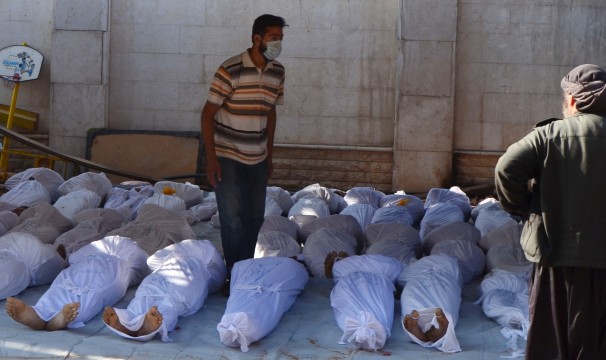In the ongoing debate on Syria’s reported use of chemical weapons in their country’s civil war, nations across the globe are working with the United Nations to look for ways to best respond.
Syria has reportedly signed the international chemical weapons treaty and agreed to a diplomatic solution with Russia to send all its chemical warfare to international control in order to be dismantled.
This comes after President Barack Obama called for what he deemed a “limited military strike” to send a message on chemical weapons. In a national address Tuesday Sept. 10, he stated the nation should act but pursue the diplomatic solution by Russia.
University political science professor George Picoulas added, “President Obama wanted a diplomatic solution or at least a postponement of military action after he realized the public wasn’t behind him.”
Amanda Pena, senior, said the United States should strike but drew a line in not supporting military intervention. She stated, “I don’t think a strike is ideal, due to the innocent lives that may be lost. …We’re opening Pandora’s box either way.”
A panel in the U.S. Senate approved Obama’s plan to strike Syria on Sept. 4 as the entire Senate was set to vote on the plan before Senate Majority Leader Harry Reid delayed the vote. The rest of the Congress, the House, was to vote on Thursday Sept. 12, before Obama delayed a such vote.
The conflicting reports of the Aug. 21 chemical weapons event in Syria don’t make the situation any easier to navigate. The United States claimed 1,429 were killed in the chemical attack by who they claim to be the Syrian government. Russia, meanwhile, claims the opposite—that the opposition put on the attack.
The United Nations had expert inspectors go to the location of the chemical attack just outside the nation’s capital Damascus and is releasing an official report with their findings.
Throughout the international community, there is a level of distrust in regard to the ongoing situation.
Pena added, “In terms of Russia’s proposal, I’m not sure if such a plan will work. Idealistically, it’d obviously be great if Syria fully agreed to hand over their chemical weapons. But realistically, they are in a state of war. To hand those weapons over, would be to throw up a white flag.”
It has been reported by the Wall Street Journal that Assad’s regime is scattering the nation’s chemical arms into sites across the country. Syria’s opposition, General Salim Idriss claimed to tell CNN that the Syrian government is moving chemical weapons to Iraq and Lebanon.
Picoulas stated on the low level of trust in this conflict, “No one is to be trusted in this game of poker. They’re all bluffing and will act if it’s [in] their interest. They’ll find plenty of ways to justify such action.”
“I wouldn’t be surprised if the U.S. realized a strike is a no-win situation, asked the Russians to tell the Syrians to allow inspections and give up their chemical weapons,” Picoulas continued. “Syrians avoid a strike, the Russians appear as deal makers, and the US saves face and still keeps the strike option alive.”
In terms of keeping the military strike option open along with pursuing the diplomatic solution at hand, Pena comments, “If Syria agrees to hand over their weapons and are bound to this agreement, then no, a strike is not necessary. However, if they give us any complications or break this agreement, then yes.”
“For such a serious action, we have to weigh the benefit v. cost, and especially ask what are we specifically trying to achieve? In concrete and measurable terms, not longitudes and platitudes as Obama’s speech was full of last Tuesday,” continued Picoulas, finally asking, “So, can we achieve that—we can’t even agree what it is—by dropping bombs on Syria?”
As political talks involving United States Secretary of State John Kerry and Russian Foreign Minister Sergei Lavrov take place in Geneva, The Washington Post reports that the CIA is sending American weapons to vetted Syrian rebels. This move comes after the Obama administration promised to arm rebels back in June.
Meanwhile, the civil war has raged on in Syria. There have been reports that the Syria air force bombed a hospital in rebel-held territory in northern Syria. More than 100,000 have been killed over the course of the two and half year conflict.







